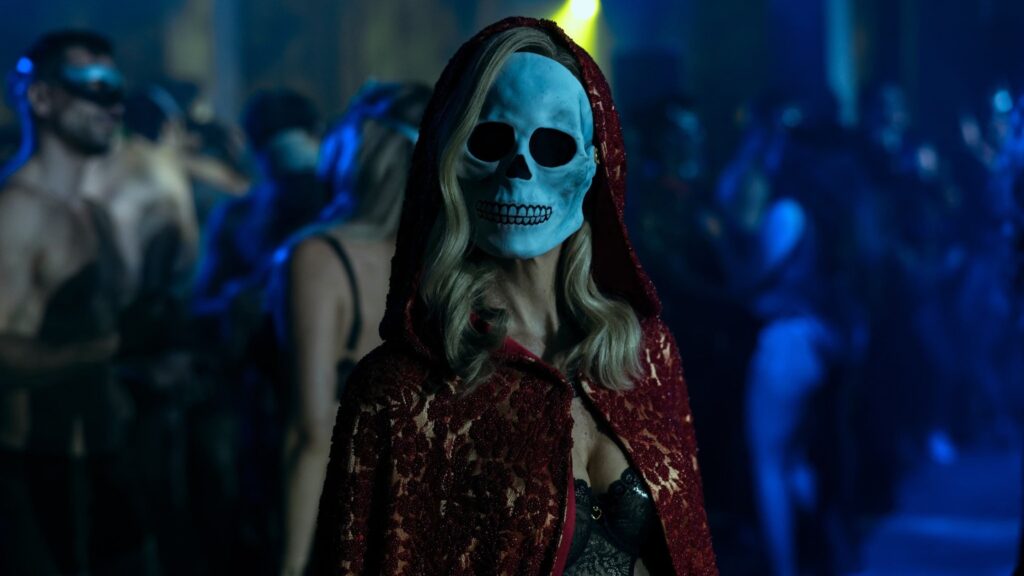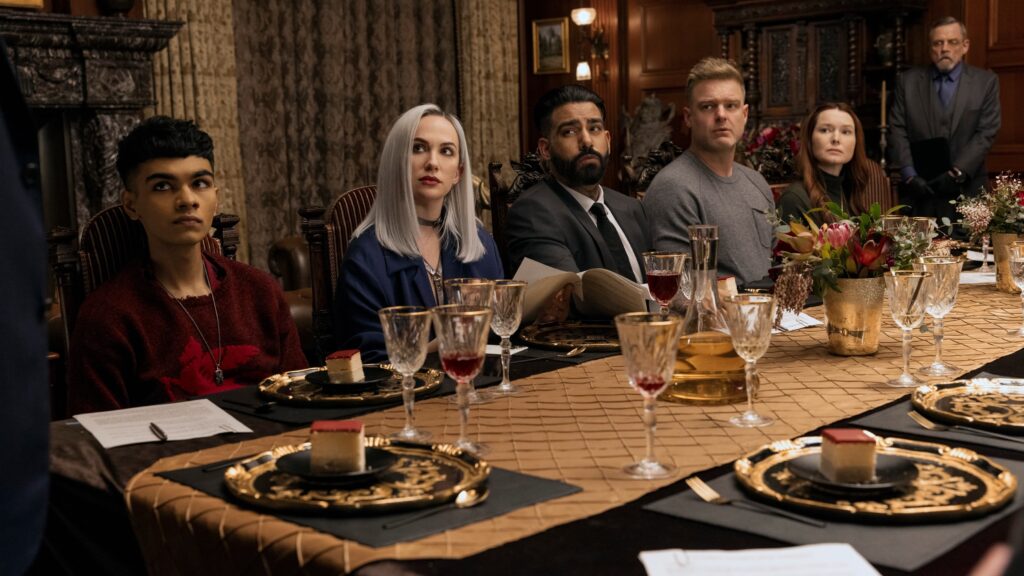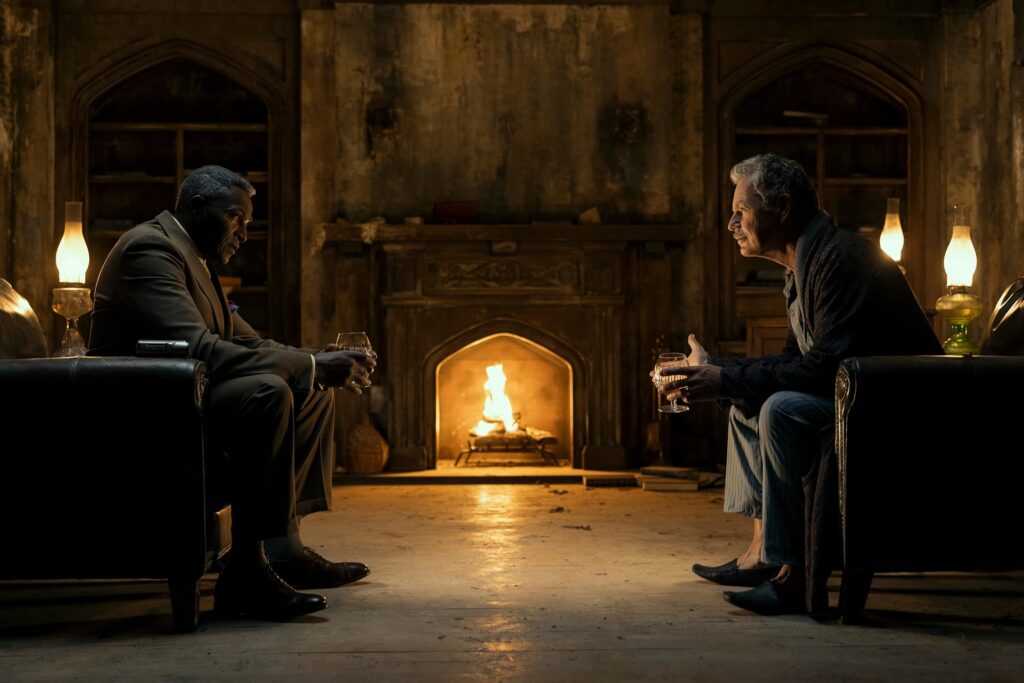I usually cover Halloween season’s readings towards the end of the 6 Weeks of Halloween, so just to preview this year’s offerings, one of the things I’ve read was a large selection of Edgar Allan Poe stories (amongst other writings, poems, etc…) Obviously, I was already familiar with some of the more famous stories and poems (i.e. The Raven, The Tell Tale Heart, etc…), but I wanted to have Poe fresh in my mind before watching Mike Flanagan’s The Fall of the House of Usher Netflix series.
Flanagan had found something of a patron in Netflix, at least for a while, and it seemed that every year brought a new series around Halloween. I’ve never watched them in a timely manner, but I appreciate the effort and Flanagan is a talented guy who’s collected an accomplished repertory cast (it’s almost like an anthology series, similar to American Horror Story, only these are actually good.) The Fall of the House of Usher turns out to be the last of Flanagan’s Netflix productions. Rumors abound for the reasoning behind the breakup (Netflix cancelling the underperforming The Midnight Club after one season is often referenced as a flashpoint), but Flanagan is now working with Amazon Studios (and it seems like he will be taking yet another swing at Stephen King’s Dark Tower series), and I’m assuming we’ll see some familiar faces in future series. Until then, I’ll be catching up on some of the stuff I haven’t watched yet, like The Fall of the House of Usher:
Six Weeks of Halloween: Week 4.5 – The Fall of the House of Usher
Despite the title, this isn’t an adaptation of any one Poe story, but rather an ambitious mashup, remixing tales into each other while retaining Poe’s trademarks of death, decay, premature burial, antagonism, and betrayal (amongst others). It even layers in some of Poe’s poetry, which adds a dreamlike vibe to the proceedings, while relegating some other Poe tales to backstories that underline and reinforce the overall narrative. It also incorporates some non-Poe elements, most notably of the Faustian variety, and it’s all been modernized, so there’s an eat-the-rich component that’s popular these days.

While each episode is named after a different Poe story, this is not exactly an anthology series, even if there is a discernable structure to the 8 episodes, and the titular stories are heavily referenced. However, as mentioned above, they’ve all been blended together into one fluid, unified narrative with overarching themes. It’s an impressive feat of adaption, and despite Netflix’s tendency to dump all episodes at once, this is a little too dense to really binge.
That being said, it’s also probably the most fun of Flanagan’s Netflix series, which feels weird to say given its deeply macabre tone (after all, the series centers around the horrific deaths of Roderick Usher’s six children), but there’s a certain ironic gallows humor under the surface that keeps things moving. Once the structure becomes clear, some of the deaths are robbed of their impact a bit, but there remains a distinct Grand Guignol influence, such that even when you see it coming, it works surprisingly well, and by the end I was really relishing the mayhem. Maybe it’s telling that the first (inspired by The Masque of the Red Death) and last (inspired by The Pit and the Pendulum) of the deaths were my favorites, though I’m not sure exactly what to make of that (and it’s not like the others aren’t effective or anything).

As usual, the cast is great, anchored by Flanagan regulars Bruce Greenwood and Carla Gugino, with some new but recognizable names like Mary McDonnell and Mark Hamill fitting in seamlessly. The rest of Flanagan’s reparatory group pitches in admirably, as per usual, and it’s become interesting to recognize these folks mostly through their collaborations with Flanagan. Visually solid, as always, with particular attention played to the sound design. Many of Flanagan’s trademarks are there, like Easter Eggs and details hidden in the background and showy monologues, but they’re all filtered through Poe’s prose and poetry, which actually has the effect of making this feel more restrained than Flanagan’s other Netflix efforts.

Overall, it all works well, and it’s quite entertaining. Thematically, there’s lots of room for interpretation, including some perhaps unintended endorsements of conservative ideals (the Usher family got filthy rich off of an evil drug company that falsified records in order to get everyone addicted to an Oxy-like drug, the kids are all sexual deviants and druggies, one of the more evil characters denounces the traditional concepts of family and motherhood, they’re all punished for their sins (with one notable exception), etc…), but it’s actually quite well conceived in its approach and execution. Recommended!
I’ve watched a few episodes of some other Halloween season appropriate shows, but nothing that could approach Usher’s level, so we’ll just save those other shows for the inevitable Speed Round post at the end of the 6WH. Next up in the Six Weeks of Halloween? Terrifier(s). Is Art the Clown a new horror icon, or is it all smoke and mirrors? Stop by on Sunday to find out.